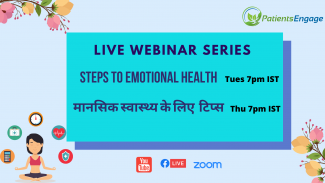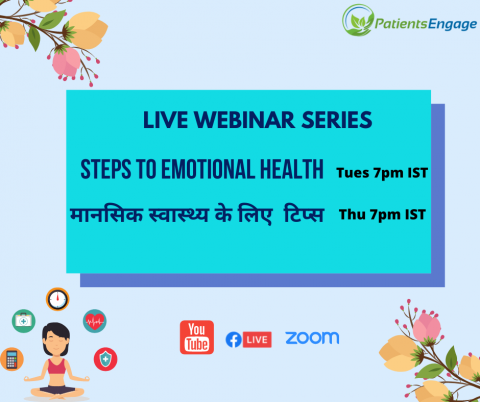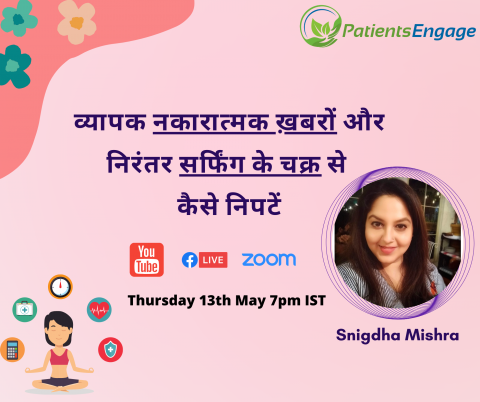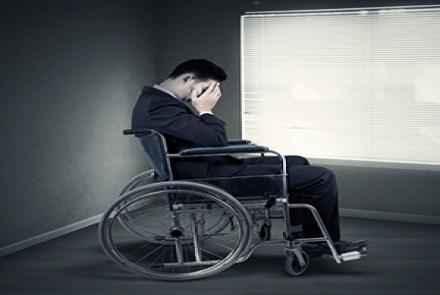People with Parkinson’s may experience extreme sadness of mood and anxiety. This could be due to the Parkinson’s itself or due to the effects of the medication. It is important to acknowledge these emotions and to get the required help.
Depression
It is natural for everybody to feel sad at times, or to get upset by things. However, after a while or if they are put in another situation, then they may no longer experience these emotions. Sometimes, people tend to experiences these emotions for an…

We are all struggling with various issues during this second wave of the pandemic. PatientsEngage has started a live webinar series every Tuesday (English) and every Thursday (Hindi) at 7pm IST with experienced counsellors who will help us understand what we are going through and share practical and actionable tips on what we can do about it.
In the first of the series on 11th May 7pm IST, we spoke with experienced Psychologist Hvovi Bhagwagar on what we can to deal with the negative news around us - on TV, on social media, on whatsapp. What is doomscrolling and doom surfing? How can we stop doing it?

On Thursday 13th 7pm we will address the same issues in Hindi with experienced psychologist Snigdha Mishra

Send us your questions in advance
#emotionalwellbeing #COVIDSecondWave #covidsecondwaveindia
Changed
12/May/2021
Condition
















